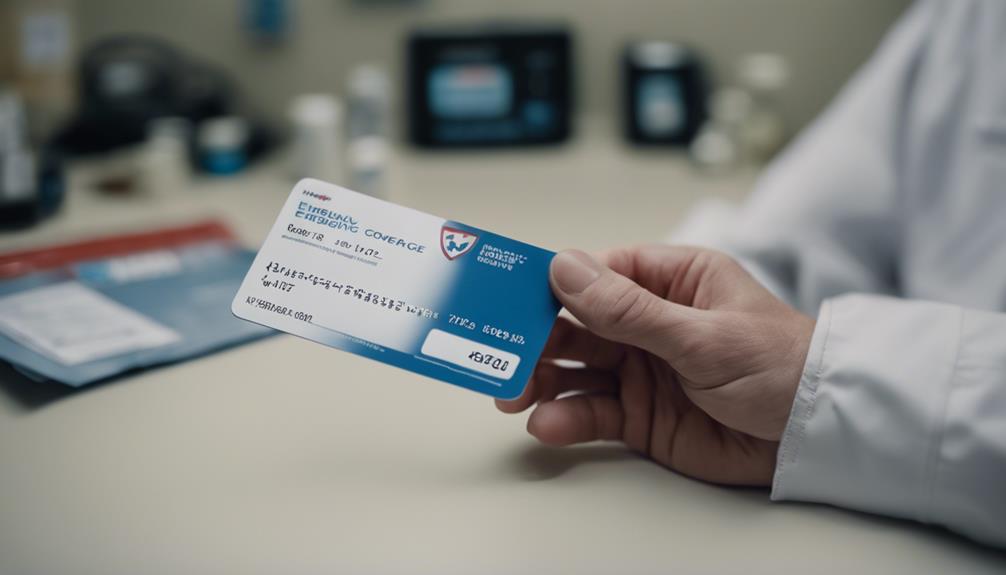Medicaid coverage in Virginia imposes restrictions based on eligibility criteria, income limits, citizenship requirements, service limitations, emergency-only coverage, non-emergency exclusions, and prior authorization needs. These restrictions encompass disability considerations, income thresholds, U.S. citizenship or legal residency prerequisites, coverage limitations, and the necessity of prior authorization for certain treatments. Understanding these restrictions is crucial for navigating the Medicaid system effectively.
Eligibility Criteria

Virginia's Medicaid program sets specific eligibility criteria to determine who qualifies for coverage. Individuals must meet certain disability qualifications or fall within specified age limits to be eligible for Medicaid in Virginia. For those with disabilities, the severity and type of disability are crucial factors in determining eligibility.
Additionally, there are age limits in place to define who can qualify based on age-related criteria. Asset thresholds also play a significant role in determining Medicaid eligibility in Virginia. Individuals must meet specific asset limits to qualify for coverage. These asset thresholds ensure that Medicaid resources are allocated to those who truly need assistance.
Work requirements may also be a factor in determining eligibility for certain individuals. Some Medicaid programs in Virginia may require beneficiaries to meet certain work-related criteria to maintain their coverage.
Income Limits
Setting specific income thresholds is crucial in determining Medicaid eligibility in Virginia. Applicants must meet both income and asset limits to qualify for Medicaid coverage. In Virginia, income limits are based on the Federal Poverty Level (FPL). The income limits vary depending on family size and the Medicaid program being applied for. Some programs may also take into account special circumstances, such as high medical expenses, when determining income eligibility.
When evaluating income, Virginia Medicaid considers sources such as wages, Social Security benefits, and pensions. It's important to note that not all income is counted towards the eligibility threshold. Deductions are allowed for certain expenses, such as child care costs for working parents, and monthly medical expenses for seniors and persons with disabilities. Additionally, the number of qualifying dependents in the household can also impact the income eligibility criteria.
In addition to income limits, Virginia Medicaid also conducts an asset test to determine eligibility. Assets such as bank accounts, investments, and real estate are considered when assessing Medicaid eligibility.
Meeting the income and asset criteria is essential for individuals and families seeking Medicaid coverage in Virginia.
Citizenship Requirements

When determining Medicaid eligibility in Virginia, another significant factor to consider is the citizenship requirements imposed on applicants. To qualify for Medicaid in Virginia, individuals must be U.S. citizens or legal residents. Documentation requirements typically include providing a valid Social Security number, proof of citizenship or legal residency, and income verification.
Exceptions to the citizenship requirement may apply in certain cases. For instance, pregnant women and children may be eligible for emergency Medicaid regardless of their citizenship status. Additionally, qualifying non-citizens who meet specific criteria may be eligible for Medicaid coverage in Virginia.
Legal residency is a crucial aspect of Medicaid eligibility. Individuals must demonstrate that they are legal residents of Virginia to access benefits. Exemptions to the legal residency requirement may be granted in situations where individuals are temporarily residing in the state but intend to establish residency.
Understanding the citizenship and legal residency requirements for Medicaid in Virginia is essential for individuals seeking healthcare coverage through the program. By adhering to these guidelines and providing the necessary documentation, eligible individuals can access the healthcare services they need.
Service Limitations
The Medicaid program in Virginia enforces specific service limitations that impact the scope of healthcare services available to beneficiaries. Coverage restrictions within the state's Medicaid program often result in service limitations that can affect the types of medical treatments and procedures covered. These restrictions may vary based on factors such as medical necessity, cost-effectiveness, and state regulations.
Service limitations under Virginia's Medicaid program can include restrictions on certain elective procedures, cosmetic surgeries, experimental treatments, and other services deemed non-essential for the well-being of beneficiaries. Additionally, coverage restrictions may apply to services provided by out-of-network providers or those not pre-authorized by Medicaid.
Understanding these service limitations is crucial for beneficiaries to navigate the healthcare system effectively and make informed decisions about their medical care. By being aware of the coverage restrictions and service limitations, individuals can work with their healthcare providers to ensure they receive appropriate and covered services under Virginia's Medicaid program.
Emergency-Only Coverage

In situations necessitating urgent medical attention, Virginia's Medicaid program provides coverage exclusively for emergency services. This means that individuals enrolled in Virginia's Medicaid may receive coverage for emergency medical conditions that require immediate treatment to alleviate severe pain, prevent serious impairment of health, or avoid risk to life.
While emergency-only coverage ensures access to critical care when needed, it also comes with coverage limitations. Medicaid in Virginia typically covers emergency room visits, ambulance services, and inpatient hospital stays related to the emergency condition. However, coverage for non-emergency services may not be included, leading to potential financial implications for Medicaid recipients who seek care for conditions that do not meet the emergency criteria.
For Medicaid beneficiaries in Virginia, understanding the distinction between emergency and non-emergency care is crucial to making informed healthcare decisions. In emergencies, individuals should seek immediate medical attention without concerns about coverage limitations.
However, for non-emergency situations, exploring alternative healthcare options like primary care providers or urgent care centers may be beneficial in terms of both access to care and financial considerations.
Non-Emergency Exclusions
Given the focus on emergency coverage limitations in Virginia's Medicaid program, it is important to address the specific exclusions related to non-emergency services. Non-urgent procedures that are not deemed medically necessary may be excluded from Medicaid coverage in Virginia. These procedures are typically elective or cosmetic in nature, such as certain types of plastic surgery or fertility treatments.
Optional services, which are not considered essential for the patient's health and well-being, are also often excluded from Medicaid coverage. These services may include things like acupuncture, chiropractic care, or weight loss programs that are not medically necessary.
Understanding these exclusions is crucial for Medicaid beneficiaries in Virginia to avoid unexpected costs and ensure they receive the necessary coverage for their medical needs. It is advisable for individuals enrolled in Virginia's Medicaid program to familiarize themselves with the specific non-emergency exclusions to make informed decisions about their healthcare options and expenses.
Prior Authorization Needs

Understanding the intricate process of obtaining prior authorization is essential for Medicaid beneficiaries in Virginia to access certain medical services. Prior authorization is required for specific treatments, procedures, or medications to ensure they meet Medicaid's coverage exceptions and guidelines. This process involves healthcare providers seeking approval from Medicaid before delivering the prescribed treatment or service. Provider approvals are necessary to verify the medical necessity and cost-effectiveness of the proposed care.
Medicaid restrictions dictate that without prior authorization, certain services may not be covered, potentially leaving beneficiaries responsible for the costs. Treatment authorizations are granted based on various factors, including the patient's medical history, the recommended course of treatment, and Medicaid's policies.
It is crucial for Medicaid recipients to be aware of the need for prior authorization to avoid any unexpected expenses or coverage denials. By understanding and complying with the prior authorization requirements, beneficiaries can ensure they receive the necessary medical care while staying within the parameters of their Medicaid benefits.
Conclusion
In conclusion, navigating Medicaid coverage in Virginia can be challenging due to stringent eligibility criteria, income limits, citizenship requirements, and service limitations.
While emergency coverage is available, non-emergency exclusions and prior authorization needs can create barriers to accessing essential healthcare services.
Overall, the restrictions in place serve as a tangled web, weaving a complex tapestry of limitations for those seeking Medicaid assistance in Virginia.
